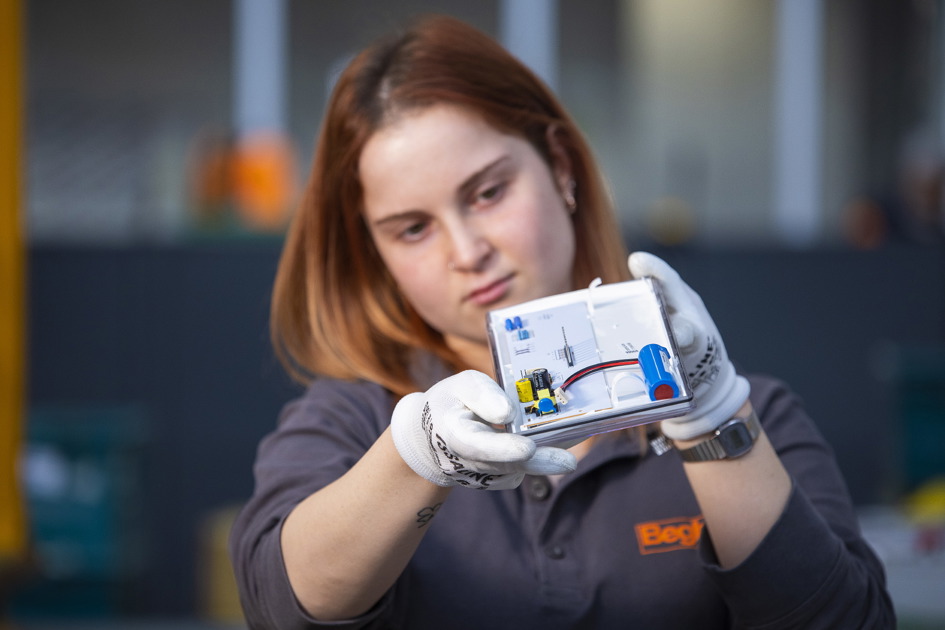Observatory
24 April 2024
Corporate social and environmental responsibility are among the new drivers for consumer purchasing choices
The energy transition is not just a financial or economic issue. Consumers and investors are showing increasing appreciation for the commitment and attention that brands are placing on aspects that affect the future of generations and the planet.
The 2019 European Green Deal has been relaunched by European Commission President Ursula von der Leyen and its increasingly challenging goals. But the opportunity for companies (and brands) is to be able to grasp new sensitivities and demands coming from the market, as well as from investors and stakeholders.
1 trillion euros is the total investment planned by the European Union to 2030 for the Green Deal. One third of the €800 billion Next Generation EU is financed by the Green Deal. Practically 30 percent of the EU's multi-year budget (2021-2028) and the Next Generation EU for recovery from the COVID-19 pandemic has been earmarked by the EU for green investments.
We already know the main milestones and they are:
- in 2030 reduce net greenhouse gas emissions by 55 percent;
- in 2050 net Zero, meaning that every ton of greenhouse gases will have to be offset with a similar amount absorbed from biomass or other systems.
- in 2030 reduce net greenhouse gas emissions by 55 percent;
- in 2050 net Zero, meaning that every ton of greenhouse gases will have to be offset with a similar amount absorbed from biomass or other systems.
The Green Deal is a challenge for the private sector, but it represents a unique opportunity to redefine the way companies operate, generate value and relate to the outside world. Companies that pursue the goals set by the Green Deal do good for the planet and also have a lasting competitive advantage because they attract environmentally sensitive consumers.
It is from July 2023 EY - SWG Purposeful Growth Observatory. Global pandemic, geopolitical conflicts and inflation have changed consumer behavior. The brand purpose of companies has become increasingly relevant in guiding consumer choices because it affects the degree of trust, loyalty and overall satisfaction of consumers. While the percentage of consumers who considered brand purpose important in their choice to purchase goods and services was 27 percent in 2020, it has grown to 78 percent in 2023. 87% of respondents said that a company with a strong and structured Brand Purpose adds value to society as a whole. And 85% said that a clear purpose helps build a strong emotional relationship between the brand and consumers.
Brand purpose affirms a new business model based on a long-term strategy because it provides a solid and authentic foundation on which to build and grow the brand, capable of creating a bond, including an emotional one, with consumers and convincing stakeholders and shareholders. The study estimates +10% average annual growth for companies driven by a clear purpose, more than 3 times that of those that do not put values at the center of their strategy. Over 12 years, the shareholder value of companies with a solid, structured purpose grew +175%, 2 times that of competitors.
Brand purpose is developed in the dimensions of both social responsibility and environmental sustainability. 68% of respondents expect brands to reinvest in the territories and communities where they primarily operate; 66% demand clarity and transparency in communicating products but also corporate values; 64% are interested in the environmental impact and reputation of brands.
Commitment to the environment, which is relevant to 64 percent of respondents, is viewed differently across generations.
For GenZ (those born between 1997 and 2012), the top three drivers for purchasing a brand's products and services are: investment in young people (66 percent), zero impact on the environment (65 percent), and concrete facts (64 percent). 83% of respondents believe that companies' adoption of sustainable behavior affects their purchase choice.
For Millennials (those born between 1981 and 1996), the three drivers are: social and environmental value creation (63%), employee well-being and satisfaction (62%), and environmental impact compensation policies (61%). 94 percent positively rate companies' efforts to provide equal opportunities for employees.
For GenX (those born between 1965 and 1980), the three drivers are: brand entrenchment in territories (68%), equity and value (65%), and environmental care (64%). 93 percent believe it is important for companies to produce zero-impact products and services.
For Boomers (those born before 1964) what matters when buying products and services is: tangible benefits (74%), promises kept (72%), attention to people's needs (68%). Ninety-five percent ask companies to reinvest in the communities and territories in which they operate.
It is the technology sector that inspires consumers the most, both in terms of innovation and the ability to develop services and solutions that improve people's lives.

Sustainability Leader 2023
Confirming our company's commitment to sustainability came for the fourth year the recognition by Il Sole 24 Ore, in collaboration with the analysis company Statista, to include Beghelli in the list of the 200 most sustainable Italian companies in 2023.
The aim of the study is to identify the companies that are investing the most in ESG issues, rewarding the realities that are committed day by day with concrete actions in the environmental, social and corporate governance fields.
The aim of the study is to identify the companies that are investing the most in ESG issues, rewarding the realities that are committed day by day with concrete actions in the environmental, social and corporate governance fields.
Our company is confirmed as a "Sustainability Leader", an achievement certified by the nation's largest business newspaper and an international analytical firm for its tangible commitment to the environment, community and consumers.
